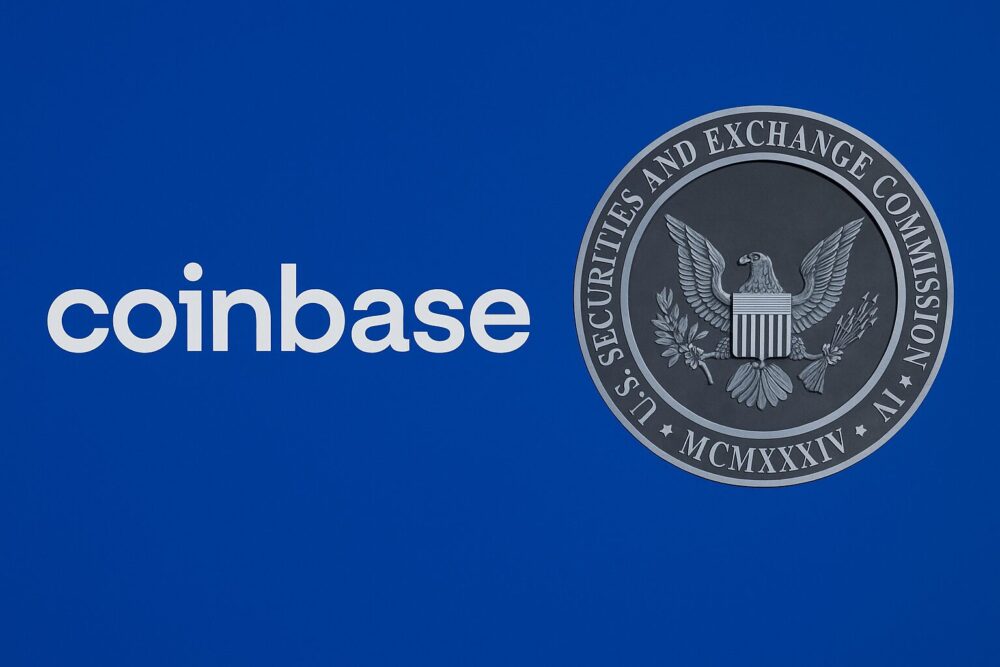Coinbase is pursuing regulatory approval from the US Securities and Exchange Commission (SEC) to launch tokenized stock trading, a move that could reshape the landscape of equity markets in the digital age.
The crypto exchange’s plan to introduce blockchain-based equities could bring it into direct competition with retail brokerage giants like Robinhood and Charles Schwab, signaling a bold step into traditional finance.
Coinbase is taking precautionary action to avoid future enforcement action by the SEC
In an interview with Reuters, Paul Grewal, Coinbase’s Chief Legal Officer, stated that the company is seeking either a no-action letter or exemptive relief from the SEC to move forward with the offering.
Such a letter would give Coinbase assurance that the agency will not pursue enforcement action, even if the product remains in a regulatory gray area under current securities laws.
Without this formal backing, Coinbase risks running afoul of the same legal uncertainties that have historically slowed the adoption of blockchain-based financial instruments in the U.S.
Grewal described the initiative as a “huge priority,” underscoring Coinbase’s strategic ambition to lead the charge in integrating blockchain with traditional equity markets.
He emphasized that regulatory clarity is key to unlocking broader institutional participation, which has so far remained on the sidelines due to legal ambiguities.
A shift toward blockchain-based equities
Tokenized equities are digital representations of traditional stocks, issued and traded on blockchain networks, offering faster settlements and potentially lower transaction costs.
Unlike conventional stock trades that settle over days and only operate during market hours, tokenized equities can be traded around the clock and finalized almost instantly.
These advantages could streamline trading processes and eliminate many of the inefficiencies associated with legacy brokerage platforms.
Coinbase is betting that US investors—both institutional and retail—are ready for a modern, digital alternative to the traditional equities market.
While several international exchanges have tested similar products abroad, Coinbase is one of the first major US-based platforms to seek regulatory approval to offer them domestically.
Notably, Coinbase’s move comes just weeks after rival exchange Kraken announced the launch of tokenized shares—branded as xStocks—for non-US users via the Solana blockchain.
Kraken’s offering includes popular US equities like Apple, Tesla, and major ETFs, though these products remain inaccessible to American investors due to regulatory constraints.
Coinbase’s decision to pursue compliance within the US reflects a deliberate strategy to differentiate itself by operating under stricter oversight.
This could appeal to investors who want exposure to tokenized assets but are wary of unregulated offshore markets.
The SEC’s evolving posture under Trump
Under the Trump administration, the SEC has taken a noticeably more crypto-friendly stance, dropping high-profile lawsuits against Coinbase, Binance, and Kraken earlier this year.
The shift has reinvigorated interest in blockchain innovation within US borders, especially as the agency sets up a dedicated crypto task force to review existing rules.
Grewal suggested that the current regulatory climate offers a rare window of opportunity to push forward initiatives that would have faced significant resistance just a year ago.
Despite the SEC’s more accommodating tone, Coinbase remains cautious and is seeking formal documentation before launching any tokenized equity products.
If successful, it could prompt other American firms to explore similar offerings, triggering a wave of innovation in equity trading and capital formation.

